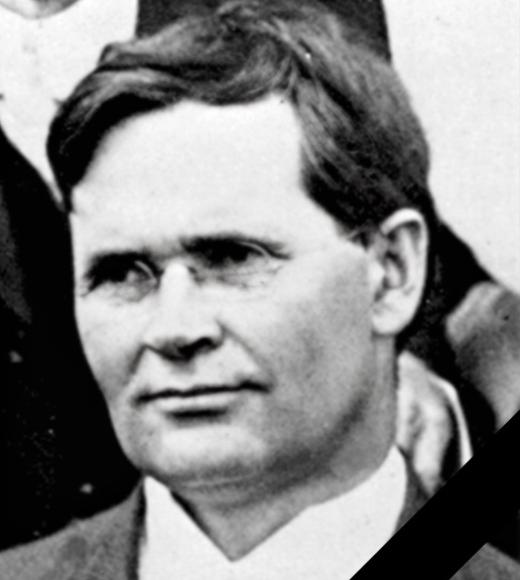
Position Title
In Memoriam
Professor of Agronomy
1872-1942
JOHN WASHINGTON GILMORE
Birth: May 9, 1872, White County, Arkansas
Death: June 25, 1942, Woodland, California
Education
- B.S., Agriculture, Cornell University, 1898
- M.S.A., Agriculture, Cornell University, 1906
Employment
- Assistant Director, Provincial Agricultural College, Wuchang, China, 1898–1900
- Instructor, Honolulu Normal and Training School, 1901
- Fiber Expert, Bureau of Agriculture, Philippines, 1902
- Instructor and Assistant Professor of Agronomy, Cornell University, 1903–1907
- Professor of Agronomy, Pennsylvania State College, 1907–1908
- President, College of Hawaii (later University of Hawai‘i), 1908–1913
- Professor and Head, Division of Agronomy, University of California, Davis, 1913–1923
- Professor of Agronomy, University of California, Davis, 1923–1942
Honors, Awards, and Professional Societies
- Fellow, Ecological Society of America
- Member, American Association for the Advancement of Science
- Member, American Genetic Association
- Member, American Society of Agronomy
- Member, Sigma Xi, Pi Gamma Mu, Alpha Zeta, Phi Alpha Iota
Research Contributions and Impact
Gilmore was an early leader in agricultural education and international agronomy. He worked in China, the Philippines, and Hawaii to establish agricultural colleges and improve farming practices. As president of the College of Hawaii, he helped build one of the first land-grant institutions in the Pacific, dedicated to public service and agricultural advancement.
At UC Davis, Gilmore expanded the Division of Agronomy, recruiting leading scientists and broadening the department’s scope. His research and outreach in Latin America—especially in Chile, the Dominican Republic, and Mexico—focused on land use, fiber crops, and agricultural policy. His firsthand observations in Asia and the Americas gave him an unusually global perspective on sustainable farming.
Teaching and Mentorship
Gilmore was admired for his compassion, patience, and interest in students, particularly those from abroad. He encouraged international understanding and founded the International Forum at UC Davis to foster connections between foreign and American students. Known as “kindness itself,” he was remembered for his dedication to helping students think critically and for creating a welcoming academic community.
Legacy
Gilmore’s influence reached across continents. He helped establish agricultural education in Asia, strengthened UC Davis’s agronomy program, and promoted international cooperation in science and education. Gilmore Hall at both the University of Hawai‘i and UC Davis was named in his honor, commemorating his lifelong commitment to students and the global agricultural community.
References
For additional tributes, interviews and biographies, see the following resources:
